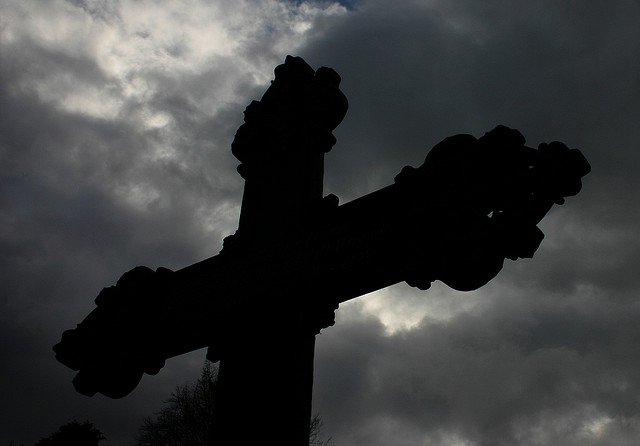There are three scenes in this Sunday’s Gospel that give me an odd sort of comfort. The first scene takes place in the Garden of Gethsemane, where Jesus has gone to pray. We are not told this explicitly, but I get the sense that Jesus just needed to get away from it all at this moment, to be alone, to pray to God before facing what he was about to face. Jesus is honest with his disciplines, explaining to them that his “soul is sorrowful even to death.” Addressing God as Father, a term that was unusual for Jews to use during Jesus’ time, which indicates Jesus’ intimate relationship with God, Jesus prays, “My Father, if it is possible, let this cup pass from me; yet, not as I will, but as you will.” Jesus first asks to be spared, but then in the next breath reaffirms his trust in God, indicating his willingness to follow God’s will and not his own.

This is a Jesus that I can relate to; this is a Jesus I know is there. At the times in my life when I have felt deep sorrow, the sort of sorrow that feels as if it will swallow you whole, I have felt the irresistible urge to be in contact with the ground. Prostrate on the floor, I have cried and prayed, prayed and cried, imagining that Jesus, too, once knelt on the ground in Gethsemane, in touch with the dust out of which human beings are formed and into which they will return. Of course, this does not take away the sorrow, but it helps somehow to know that Jesus felt something similar. It helps somehow to know that even for Jesus is was not always easy to follow God’s will. This Jesus gives me permission to ask God if things might be another way, all the while encouraging me to trust in God.
The second scene is a familiar one involving Peter, who is milling about in the courtyard outside the high priests’ chamber, waiting, we can suppose, for the results of Jesus’ trial with the Sanhedrin. Despite his testimony earlier in the evening that he would never deny Jesus, Peter vehemently argues that he does not know Jesus to not just one, but three different groups of people who ask him if he was been with Jesus the Nazarene. (Interestingly, the first two people to whom Peter makes his denial are a servant woman and a girl, who, because of their social and gender status, likely would not have been in a position to do him harm had he affirmed his relationship with Jesus.)
Unfortunately, this is a disciple that I can relate to all too well. Luckily, I live in a time and a place where I do not have to deny having a relationship with Jesus if I am ever asked about it point blank. And yet I wonder how often my actions speak louder than any words ever could a denial of my identity as a Christian. How often do I fail to extend charity to those who need it most? How hard it is for me to include in my busy schedule time to work for justice and peace in my community? There is an odd sort of comfort in knowing that Peter, someone who actually knew and gave his life to follow Jesus, was not always up to following the call. And Peter’s response when the cock crows offers me a clue as to what I need to do when I realize the ways in which I have not lived as a disciple lives: take time to mourn.
The third scene takes place on the cross. As people are gambling for his garments and taunting him to save himself, Jesus cries out, “My God, my God, why have you forsaken me?” Scripture scholars have spent much ink debating about this cry of Jesus on the cross. From my perspective, it is an authentic cry of anguish. Yes, we know that the end of the story is resurrection, but in that moment, Jesus felt abandoned, alone, angry. And in expressing those emotions, in yelling out to God, Jesus gives us permission to do the same. We are allowed to be angry with God, to yell at God when we do not understand. It is okay because God is God, and God can take it. And again, while this does not take away our anguish, we can take comfort in the fact that Jesus can commiserate with us because he experienced these very same human emotions. This Jesus is not one who shies away from the hard emotions in life. This is a Jesus who walks with us through the valleys of death.
These three scenes could be seen as dark and depressing. Maybe they are dark and depressing for someone who has never felt deep sorrow, deep anguish, deep doubt, or deep fear. But I have felt all these things, and knowing that Jesus felt them and that some of his closest followers felt them makes me feel less alone on my journey of faith. And perhaps most importantly, these three scenes remind me that it is okay to be human because that is what we are. I do not have to be perfect, and I am not expected to happily and unquestioningly follow God’s will. The journey of faith does not only encompass mountain top moments but also valleys of despair and doubt. And Jesus is not only with us looking out at the amazing vistas; he is with us most especially when we cannot see our way forward.